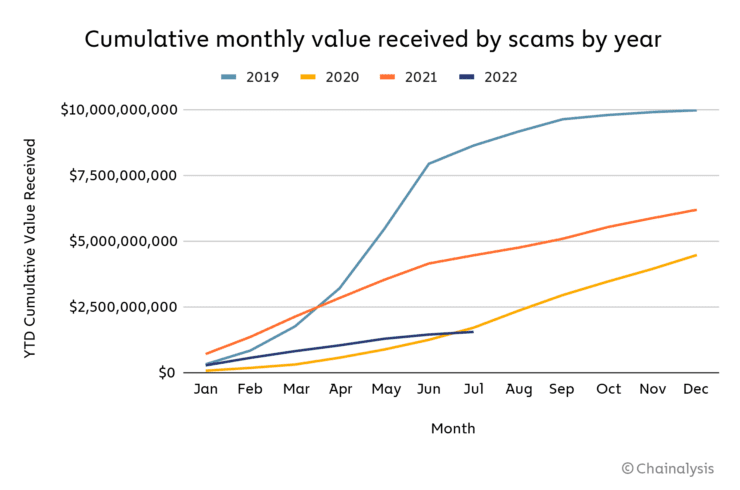A new alert issued by ESET to NFT investors indicates that the non-fungible tokens are for speculation only. This would be just one of the risks people could take when getting involved with the new class of digital assets. Since 2021, the blockchain registered collectibles market has moved billions of dollars. Considered promising by novice investors, the truth may be completely opposite according to the new survey by the cybersecurity company. The situation is even more worrying in Brazil, considering that this country has the second largest number of investors associated with this technology.
ESET issues risk warning on NFT speculation
In a new study by ESET and shared with the livecoins, the company claims that the current NFTs market can lead investors into several pitfalls. Among the risks found by the company’s data collection, threats such as phishing attacks, pump and dump schemes and the cost of blockchain transactions were some of the problems. According to Jake Moore, ESET’s Global Security Advisor, NFTs are speculation without any real evidence.
“Advocates and early investors claim that the NFT markets have created the framework for a new digital economy and there are many people excited about the future of this technology. The fear of missing something that some feel is high, and this is obvious when we see low resolution images of the apes from the Bored Ape series, memes or even NFT that land in the metaverse and can cost thousands of dollars. We are potentially in an evolution and there is always money to be made in this scenario. But NFTs are speculation, or even just a guess with no real evidence. The important thing is to be careful and stay protected while enjoying technological innovations.”
How to protect yourself from risks with NFTs?
Even considering NFTs a high-risk market, executive Jake Moore does not rule out the possibility that in the future art will migrate to NFTs, which give artists more control over their works, as well as fairer pricing. If NFTs then aren’t just speculation and high risk, the company warns that investors should have at least five points of attention when getting involved with these collectibles, which are:
Make sure that the private keys or seed phrases to access cryptocurrencies remain in a really safe place; never share them with anyone.
If you receive a direct message from someone claiming to be a founder, celebrity or influencer, please do not reply or click on links they may share. Unfortunately, that’s how scams are.
If you still want to buy an NFT, do your research to make sure you buy the item from a verified account. It’s not a bad idea to look for the blue mark next to the artist’s profile on the NFT marketplace, although it is by no means a guarantee of the account’s legitimacy.
If you buy an NFT, also try to take possession of the tangible or digital asset (in the form of a JPEG, MP3 or PDF file) directly. This isn’t always possible, but it helps to trust that what you’re buying is genuine. New moves are appearing in the NFT scene all the time.
The best way to avoid new and existing types of scams is to stay informed and investigate.

